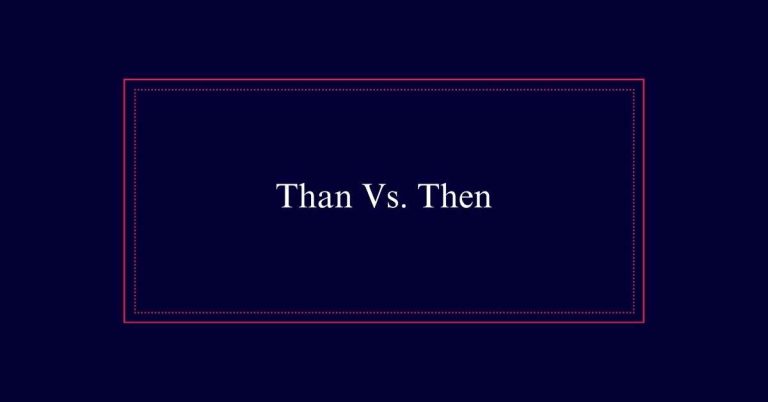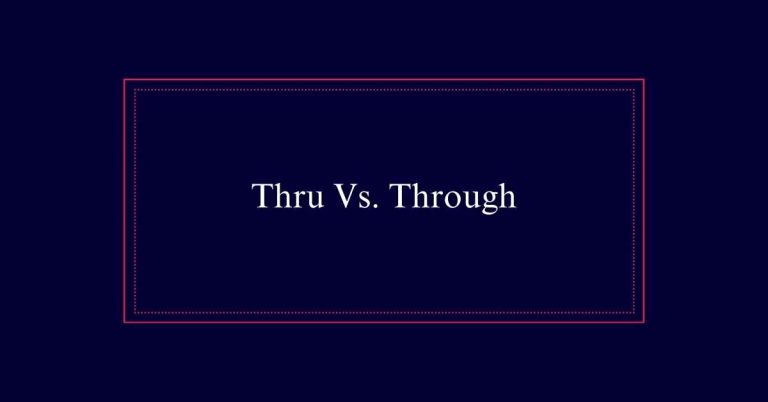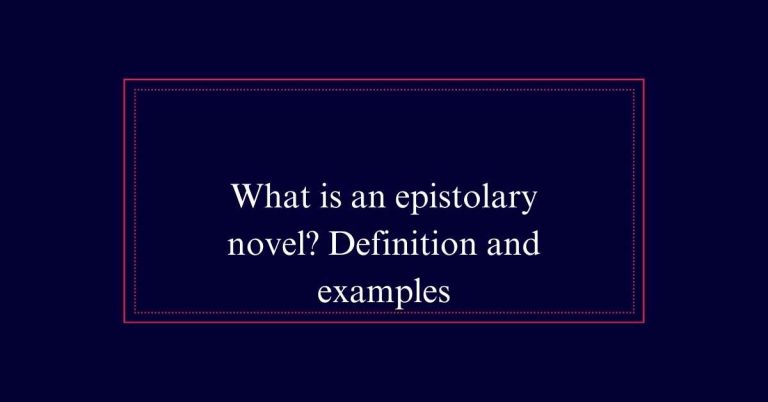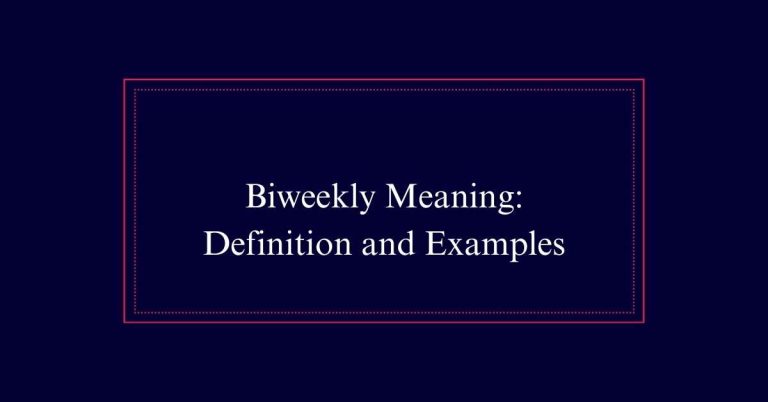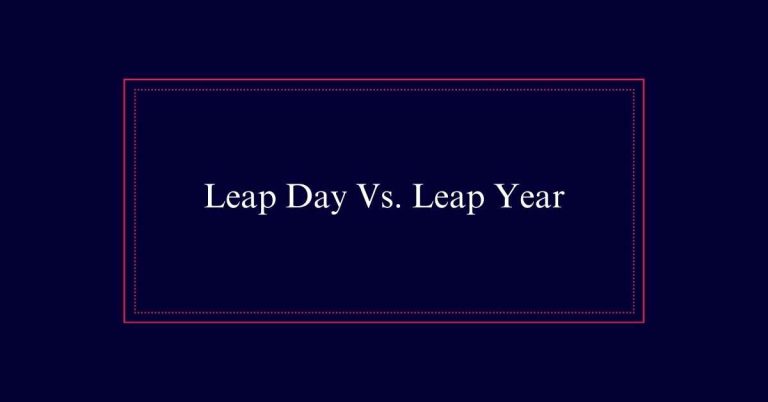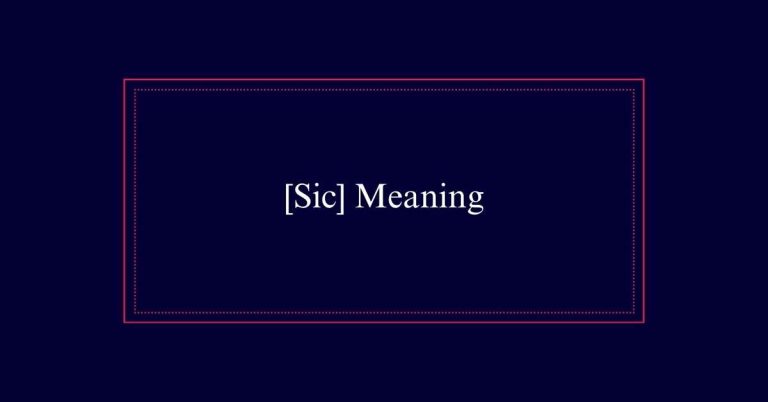Are Stupider and Stupidest Words?
Yes, ‘stupider’ and ‘stupidest’ are correct words in the English language. They follow the standard rule for one-syllable adjectives, which add ‘-er’ for the comparative and ‘-est’ for the superlative forms. Major dictionaries like Merriam-Webster recognize and validate these words.
Adjective Form Rules
When forming comparatives and superlatives, the structure of the adjective determines the correct application. Adjectives of different lengths follow distinct rules.
For adjectives with three or more syllables, ‘more’ and ‘most’ are used to form comparatives and superlatives, respectively. For example, ‘more beautiful’ and ‘most beautiful’ are correct.
Two-syllable adjectives can be more complex, sometimes taking ‘-er’ and ‘-est’ or using ‘more’ and ‘most.’ The choice often depends on the ending of the adjective and common usage. Adjectives ending in -y, such as ‘happy,’ become ‘happier’ and ‘happiest.’
One-Syllable Adjectives
One-syllable adjectives typically form their comparative and superlative versions by adding ‘-er’ and ‘-est’ respectively. For example, the adjective ‘smart’ becomes ‘smarter’ in its comparative form and ‘smartest’ in its superlative form.
This rule holds true for most one-syllable adjectives, such as ‘tall’ which changes to ‘taller’ and ‘tallest,’ and ‘fast’ which becomes ‘faster’ and ‘fastest.’ These forms are straightforward and easy to use.
Multi-Syllable Adjectives
Multi-syllable adjectives generally form their comparative and superlative versions using ‘more’ and ‘most’ respectively. This is because adding ‘-er’ or ‘-est’ to longer adjectives can create awkward or hard-to-pronounce words.
For example, instead of saying ‘beautifuller’ or ‘beautifullest,’ we say ‘more beautiful’ and ‘most beautiful.’ This rule applies to adjectives with three or more syllables, such as ‘intelligent’ (more intelligent, most intelligent) and ‘expensive’ (more expensive, most expensive).
Two-Syllable Adjectives
Unlike multi-syllable adjectives, two-syllable adjectives can follow mixed rules for forming comparative and superlative versions. Some two-syllable adjectives add ‘-er’ and ‘-est’ to form their comparative and superlative forms, such as ‘clever’ becoming ‘cleverer’ and ‘cleverest.’ Others use ‘more’ and ‘most’ before the adjective, like ‘polite,’ which becomes ‘more polite’ and ‘most polite.’
The choice often depends on the ending of the adjective and natural usage. Adjectives ending in -y, -er, -le, or -ow tend to add ‘-er’ and ‘-est.’ For instance, ‘happy’ becomes ‘happier’ and ‘happiest.’
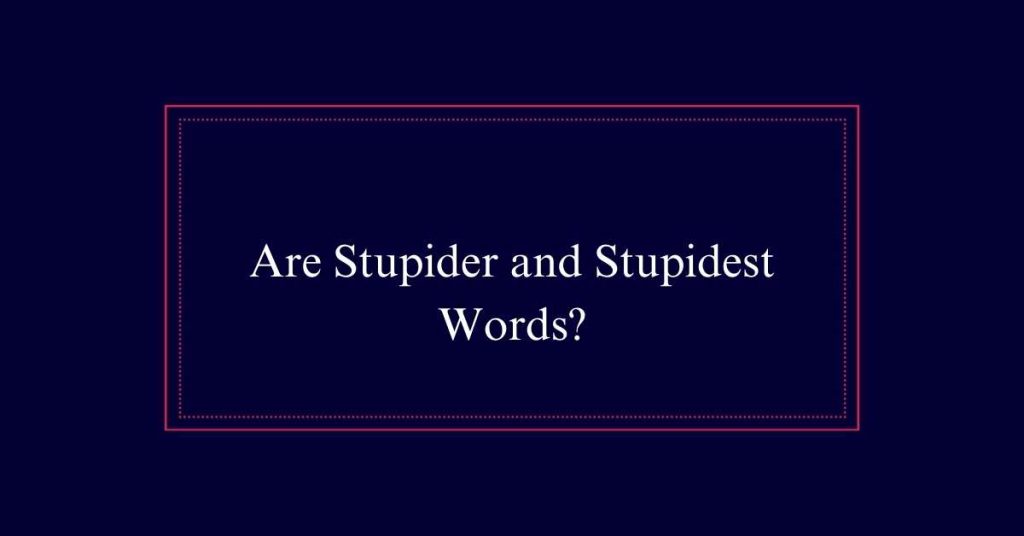
Dictionary Definitions
Major dictionaries list ‘stupider’ and ‘stupidest’ as grammatically correct forms. This inclusion in respected language resources affirms their legitimacy in both written and spoken English.
For those skeptical of their correctness, consider these points:
- Authority: Reputable dictionaries such as Merriam-Webster and Oxford English Dictionary validate these forms.
- Clarity: Using ‘stupider’ and ‘stupidest’ follows standard comparative and superlative adjective rules, aiding clear communication.
- Consistency: These forms align with the treatment of other one-syllable adjectives, maintaining uniformity in language use.
Superlative Forms
The superlative form of adjectives follows clear rules that help users convey the highest degree of a quality. Generally, one-syllable adjectives add ‘-est’ to form the superlative. For example, ‘small’ becomes ‘smallest.’
Adjectives with more than two syllables use ‘most,’ like ‘most beautiful.’ For two-syllable adjectives, the rules vary. Some take ‘-est,’ while others use ‘most.’
In the case of ‘stupid,’ the superlative form is ‘stupidest.’ This is consistent with the rule for one-syllable adjectives, despite ‘stupid’ having two syllables. Major dictionaries list ‘stupidest’ as the standard superlative form.
Standard Superlative Usage
Standard superlative usage is essential for clear and effective communication in both written and spoken language. Superlatives help us compare three or more items, emphasizing the extremes or highest degrees of a quality.
For one-syllable adjectives like ‘small,’ we add ‘-est’ to form ‘smallest.’ For adjectives with more than two syllables, we use ‘most’ before the adjective, such as ‘most beautiful.’ Two-syllable adjectives can vary, but many take the ‘-est’ ending.
Consider the importance of mastering superlatives:
- Clarity: Ensures your message is easily understood.
- Precision: Communicates exact degrees of comparison.
- Professionalism: Reflects a command of language that enhances credibility.
Usage Examples
When examining the usage of ‘stupider’ and ‘stupidest,’ it is important to analyze real-world examples in order to grasp their correct application. Consider the following sentences:
| Example Sentence | Correct Usage | Context |
|---|---|---|
| ‘This idea is stupider than the last.’ | Stupider | Comparative |
| ‘Out of all the plans, this is the stupidest.’ | Stupidest | Superlative |
| ‘She couldn’t think of a more stupid excuse.’ | More Stupid | Comparative (alternative) |
| ‘The stupidest thing he could do is ignore advice.’ | Stupidest | Superlative |
Correct Comparatives
Understanding the correct comparatives involves knowing when to use ‘stupider’ versus ‘more stupid’. The general rule is that one-syllable adjectives, like ‘smart,’ take the -er ending, making ‘smarter.’
For adjectives with more than two syllables, such as ‘intelligent,’ the correct form is ‘more intelligent.’ Two-syllable adjectives can follow either pattern, depending on common usage and euphony.
For the adjective ‘stupid,’ which has two syllables, both ‘stupider’ and ‘more stupid’ are acceptable. Major dictionaries recognize ‘stupider’ as correct.
Consider these points:
- Simplicity: ‘Stupider’ follows a straightforward rule.
- Formality: ‘More stupid’ can sound more formal.
- Preference: Usage can vary by personal or regional preference.
Common Misconceptions
Despite its acceptance in major dictionaries, some people mistakenly believe that ‘stupider’ is not a valid word. This misconception often stems from the notion that ‘stupider’ sounds awkward or incorrect. However, ‘stupider’ follows standard comparative rules for one-syllable adjectives.
Many also think ‘more stupid’ is preferable, influenced by the mixed rules for two-syllable adjectives. Yet, both forms are correct, though ‘stupider’ is more grammatically traditional.
Another common myth is that ‘stupider’ and ‘stupidest’ are informal or non-standard. Contrary to this belief, major dictionaries and linguistic authorities confirm their legitimacy.

